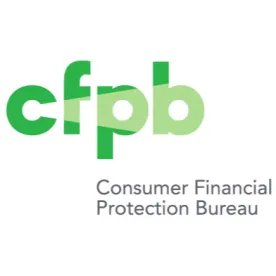24 state attorneys general, the D.C. attorney general, and the Executive Director of the Hawaii Office of Consumer Protection have sent a joint comment letter to the CFPB urging it not to make any changes to the Regulation E rule that limits the ability of financial institutions to charge overdraft fees for paying ATM and one-time debit card transactions that overdraw a consumer’s account (Overdraft Rule). The Overdraft Rule prohibits overdraft fees from being charged on such overdrafts unless the consumer has affirmatively consented or opted-in to the institution’s payment of such overdrafts.
In May 2019, the Bureau issued its plans for conducting reviews of its rules that have a significant economic impact upon a substantial number of small business entities. Pursuant to Section 610 of the Regulatory Flexibility Act, every agency must publish in the Federal Register a plan for the periodic review of the agency’s rules that have a significant impact on a substantial number of small business entities (610 Review). The plan must provide for a review of the relevant rules within 10 years of a rule’s publication as a final rule. The purpose of a 610 Review is to determine whether a rule should be continued without change, or amended or rescinded, consistent with the objectives of the relevant statute, to minimize any significant economic impact of the rule on a substantial number of small business entities.
Together with the issuance of its plans for conducting 610 Reviews, the CFPB launched the first such review–a review of the Overdraft Rule which was adopted in 2009 by the Federal Reserve Board as an amendment to Regulation E, which implements the EFTA. (The Dodd-Frank Act transferred authority to implement the EFTA from the Board to the Bureau.) In connection with its review of the Overdraft Rule, the Bureau asked for comment on the nature and extent of the rule’s economic impacts on small entities and whether and how the Bureau by rule could reduce the costs of the Overdraft Rule on small entities.
In their comment letter, the state AGs indicate that they “are aware of no support for any claim that the Overdraft Rule has placed substantial economic burdens on small financial institutions that would justify modifications to the Rule.” They assert that “given the enormous success of the Rule in reducing overdrafts and overdraft fees for consumers, the fact that the Overdraft Rule appears to have marginally reduced the revenues and profits of many large and small banks because millions of consumers individually chose not to opt in to costly services is no argument against the Rule.” The AGs also ask the Bureau to consider “expanding the Overdraft Rule to cover other transactions such as checks and automated clearinghouse (“ACH”) transactions, and to require that all overdraft fees be proportional to the amount paid by a bank to cover the overdrawn transaction (i.e., fees of no more than a certain percentage of the covered amount), capping what are essentially high rates of interest on short-term, low-risk loans.”
According to an American Banker report, banking industry trade groups, including the American Bankers Association, have submitted comment letters urging the CFPB not to change the Overdraft Rule.



 />i
/>i
